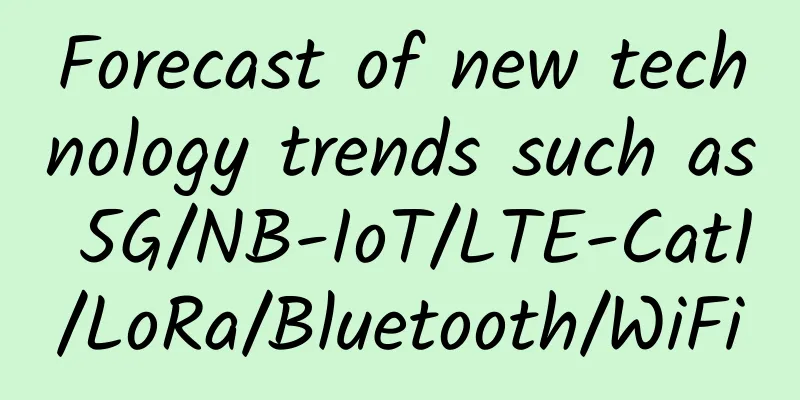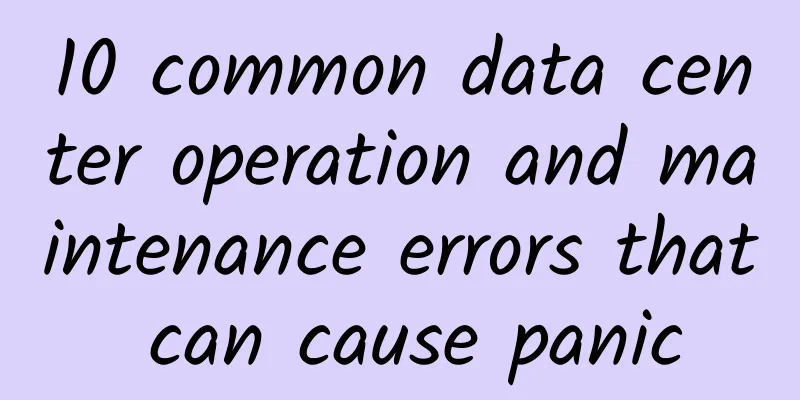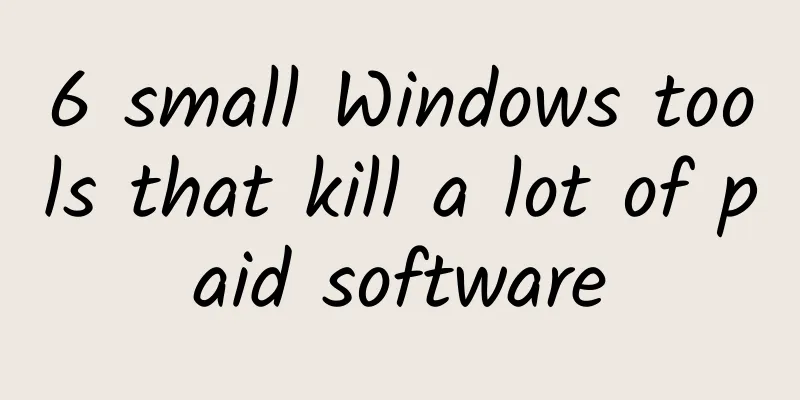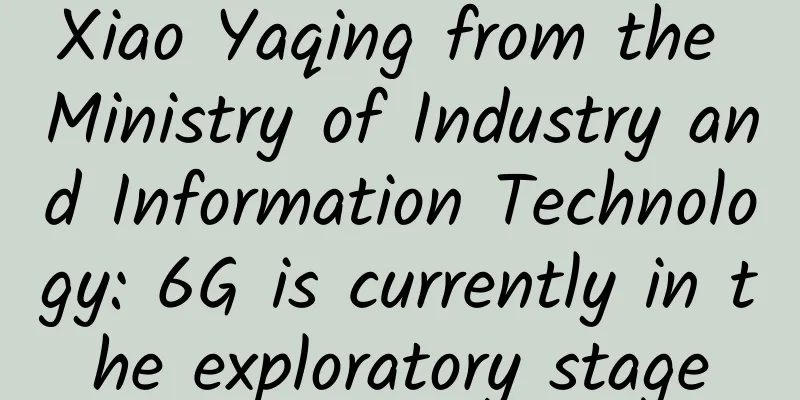WeChat's biggest competitor is coming! The three major operators are all working on 5G, and news is coming soon
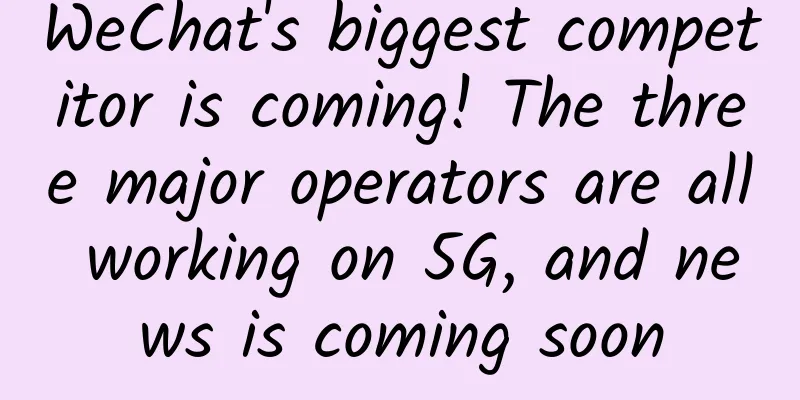
|
5G messaging, which is regarded by the industry as the biggest competitor of WeChat, is coming! According to the Shanghai Securities News, China Telecom, China Mobile and China Unicom have all begun large-scale deployment of 5G messaging, and 5G messaging is expected to become one of the first 5G applications seen by individual users. Since 5G messaging was first proposed in the "5G Message White Paper" on April 8 this year, some public opinion viewed it as "the three major operators besieging WeChat." Now, with the rapid development of 5G messaging, does it mean that WeChat's position is about to be impacted? Is WeChat, which is used by 1.1 billion people, no longer secure? What is 5G messaging? Before we get into the question, we first need to understand what 5G messages are. 5G messaging is actually an upgrade of the SMS service and a basic telecommunications service provided by operators. It was first proposed on April 8. At that time, China Mobile, China Telecom and China Unicom jointly announced the release of the "5G Message White Paper" and launched the "5G Message" service. 11 terminal manufacturers including ZTE, Huawei, Xiaomi and OV also actively expressed their support. Although "5G messages" seem to be closely related to 5G, in reality, it is not a feature unique to the 5G era. The upgrade of 5G messages compared to traditional SMS lies in RCS (Rich Communication Services & Suite, RCS for short). RCS is a new generation of international standard for messaging services. The information service platform built on this standard can make “information as platform, user as customer, and mobile phone as application” a reality. It should be noted that RCS is not a product of the 5G era, and it was proposed as early as 2007. Although it has appeared for a long time, the development of RCS in China is relatively slow; this is related to the deployment of 3G and 4G networks in China, but it is also related to the promotion of operators. Now, with the arrival of 5G, 2/3G networks are being decommissioned at an accelerated pace. Traditional voice and SMS services that were originally dependent on 2/3G networks need to be migrated. Coupled with the mature coverage of domestic LTE networks, RCS has the best time to be launched. Therefore, "5G message" came into being. Having said so much, what can 5G messages do specifically? Its business includes two major aspects - one is the messages exchanged between individual users (including point-to-point messages, group messages and group chat messages); the other is the messages exchanged between industry customers and individual users. Let’s look at them separately: For individual users, 5G messages will break the traditional SMS format of 140 bytes of text for each message. The content will also break the limitations of text and realize the integration of various rich media information such as text, pictures, audio, video, location, file transfer, etc. For enterprises, 5G messages will provide them with an information interaction interface with individual users. Enterprises can provide personalized services and consultations to users through rich media, such as air ticket and hotel reservation inquiries, logistics inquiries, online shopping order inquiries, etc. In addition, users can also achieve a one-stop business experience such as search, interaction, sharing and payment in the message window. In short, most of the functions that users can currently operate on WeChat can also be realized in 5G messages. Based on this, 5G messages have aroused public opinion since their release. Some people believe that 5G messages are an attack on WeChat by the three major operators, and some even say that 5G messages are a "revenge" of the operators to regain the voice and SMS revenue that was snatched away. Now that 5G messaging is about to arrive, is WeChat in danger? About to replace WeChat? Although the public opinion is somewhat exaggerated, it does have some credibility. Moreover, this is not the first time that WeChat and operators have clashed.
When WeChat was launched in 2011, it competed with China Mobile's Fetion. The two are very similar in basic functions. The biggest difference is that Fetion charges a fee for sending messages and makes money from traditional communication service fees; while WeChat is free and can rely on data traffic for communication. It should be noted that WeChat is not truly free for users, and they still need to pay for data traffic to use it, but WeChat itself is not a paid software. Based on this, operators have become a "pipeline" to help connect WeChat and users. The subsequent results are not difficult to predict. WeChat has grown into the number one social platform with 1.2 billion monthly active users, while Fetion has been losing ground. In addition, the reason why Fetion was quickly replaced was also related to its closed nature. At the beginning, Fetion was not open to China Unicom and China Telecom users, and its user base was therefore greatly restricted. Today, the three major operators have joined forces to launch 5G messages, once again confronting WeChat head-on. Coupled with the "incitement" of public opinion, the tension between the operators and WeChat is once again full of gunpowder. So the question is, what are the chances of 5G messaging succeeding? Comparing 5G messaging with today's WeChat, the two still have great similarities. Not to mention that WeChat has formed a complete ecosystem in the past 10 years of development, in terms of basic functions alone, 5G messaging and WeChat are showing a parallel trend, so how can we talk about surpassing or replacing them? Furthermore, in the years when operators have been "lagging behind" in instant messaging, users have formed relatively fixed social habits in the WeChat ecosystem, and it is not easy to change them through 5G messages. In addition, although 5G messaging has been supported by most mobile phone manufacturers and can be natively supported on terminal products, it should be pointed out that Apple is not among them. Among domestic mobile Internet users, iPhone users are a group that cannot be ignored, and Apple already has the iMessage product in the RCS field. It is probably a big hurdle for 5G messages to obtain Apple's native support. Overall, if operators want to replace WeChat with 5G messaging, they still have a long way to go. 5G messaging is not useless In fact, the "contradiction" between operators and WeChat actually reflects the "contradiction" between operators and OTT (Internet companies bypassing operators to develop various video and data service businesses based on the open Internet) communication tools; and WeChat is just one of the most typical representatives. In recent years, traditional operators have been showing a trend of pipelineization, with SMS services becoming "verification code collectors" and the profit margins of operators being continuously squeezed. According to data from China's Ministry of Industry and Information Technology (MIIT), the number of SMS messages in China has been declining for five consecutive years since it peaked in 2012 (at 900 billion). Accordingly, the sluggish growth of SMS business has also affected the operating income of operators. On the other hand, Internet applications running on the operator's network have accumulated a large number of users and revenue. Therefore, traditional operators are in urgent need of competing with WeChat and other OTT communication tools to seize traffic entrances and find new business growth points. 5G messaging is exactly what operators are looking for. Even though it is launched against the backdrop of a large number of existing instant messaging software and most of the current OTT communication tools are similar, 5G messaging is not "useless". Compared with OTT, 5G messaging has two natural advantages: First of all, 5G messages do not require the installation of a third-party APP separately, the mobile phone can support it natively, which greatly reduces the threshold for users to use it. Furthermore, 5G messages can be directly associated with mobile phone numbers. The user number is the account, and there is no need to register. At the same time, based on the basic function of the user's address book, users can rebuild their social network without adding friends separately. In addition, according to Huxiu, some industry insiders believe that 5G messaging has great potential in the B-end market, especially for companies with lightweight customer deliveries; and this can also serve as a balance point between it and WeChat. China Unicom's independent director Lu Tingjie once pointed out in an interview that 5G messages cannot completely replace WeChat, but they can provide some differentiated functions to solve pain points that WeChat cannot solve. The social platform may become more social, and specific industry applications may run on 5G messages. It is worth mentioning that in recent years, the growth point of operators' SMS business has gradually shifted to the B-side, based on the increasing demand for enterprise-level SMS services, thus providing impetus for the growth of SMS business revenue. Based on this, even if 5G messages may not be able to snatch customers from instant messaging applications, they can still make a difference on the B-side with the image of an "upgraded version of SMS." summary 5G messaging is destined to be a revolutionary existence. From the perspective of SMS services, the emergence of 5G messages directly upgrades SMS services that are mainly in text form to rich media forms. In addition, judging from the strong alliance of the three major operators, with the arrival of 5G networks, the operators have also ushered in a change of attitude - from becoming a "pipeline" to becoming more deeply involved in it. Not only that, 5G messaging is not a one-man show for operators, but an industrial chain that requires the participation of companies such as terminal manufacturing, application development, and industry customers. It is not difficult to imagine that the transformation of 5G messaging is only a matter of time. The "road" will be repaired and waiting for the car to come.
|
<<: Introduce the commonly used encoders and decoders in Netty
Recommend
HostKvm Spring Special Offer: $48/year KVM-4G/40GB/1TB/Hong Kong Data Center
After the Chinese New Year, HostKvm sent a specia...
Interpretation of China's first LTE IoT multi-mode field test: Industry chain collaboration resolves the long-tail fragmentation problem
Recently, Qualcomm has cooperated with China Mobi...
5G video calls can't save 5G. The problem with 5G is 5G itself.
The video call function is actually not new. It h...
Start your digital transformation journey
[[402875]] Railways are the backbone of sustainab...
Netty Getting Started Practice: Simulating IM Chat
Almost all frameworks we use have network communi...
Unlocking the secrets of network security: data encryption and key management
In this digital age where data is like gold, how ...
80VPS: Los Angeles cluster server monthly payment starts from 750 yuan, Hong Kong CN2 cluster monthly payment starts from 1400 yuan, 8C (232 IPs)
80VPS is an early established Chinese hosting com...
5G keeps refreshing the timetable and the three major operators have finalized the roadmap!
5G has been constantly updating its timetable rec...
5G Technology: The Future of Smart Homes and Cities
The world is moving towards a more connected futu...
Three major operators rush to climb Mount Everest to support 5G
Good news comes from Mount Everest one after anot...
Expert: It’s time to promote 5G application innovation
Wang Zhiqin, deputy director of the China Academy...
CDN enters the licensing era, and the Ministry of Industry and Information Technology regulates and cleans up the CDN market
On December 12, the Ministry of Industry and Info...
In just 3 months, the cumulative financing exceeded 600 million yuan. Ruishu Information announced the completion of the C3 round of financing of 100 million yuan
After completing the C2 round of financing in Sep...
Useful information: When does DNS use the TCP protocol and when does it use the UDP protocol?
It is generally acknowledged that DNS occupies bo...
5G NB-IOT Billion Journey Online Industry Summit was held online. "New Infrastructure New IoT" opens up new opportunities
[51CTO.com original article] On April 15, 2020, t...

